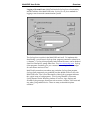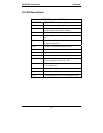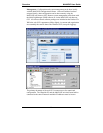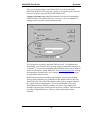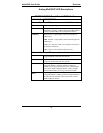
MultiVOIP User Guide Overview
27
standard), and Call Transfer (H.450.2 from H.323 Version 2). The fourth
version of the H.323 standard improves system resource usage (esp. logical
port or socket usage) by handling call signaling more compactly and allowing
use of the low-overhead UDP protocol instead of the error-correcting TCP
protocol where possible.
The MultiVOIP is also SIP-compatible. (“SIP” means Session Initiation
Protocol.) However, H.450 Supplementary Services features can be used
under H.323 only and not under SIP.
SPP (Single-Port Protocol) is a non-standard protocol developed by Multi-
Tech. SPP is not compatible with the “Proprietary” protocol used in Multi-
Tech’s earlier generation of voip gateways. SPP offers advantages in certain
situations, especially when firewalls are used and when dynamic IP address
assignment is needed. However, when SPP is used, certain features of SIP and
H.323 will not be available and SPP will not inter-operate with voip systems
using H.323 or SIP.
Data Compression & Quality of Service. The analog MultiVOIP unit comes
equipped with a variety of data compression capabilities, including G.723,
G.729, and G.711 and features DiffServ quality-of-service (QoS) capabilities.
PSTN Failover Feature. The MultiVOIP can be programmed to divert calls
to the PSTN temporarily in case the IP network fails.
Gatekeepers. For voip systems built with MultiTech’s analog gateway units,
users can have either an embedded gatekeeper (built into an MVP210G,
MVP410G, or MVP810G) or a stand-alone gatekeeper (gatekeeper software
residing in separate hardware). Gatekeepers are optional but useful within voip
systems. The gatekeeper acts as the ‘clearinghouse’ for all calls within its
zone. MultiTech’s embedded and stand-alone gatekeeper software packages
both perform all of the standard gatekeepers functions (address translation,
admission control, bandwidth control, and zone management) and also support
many valuable optional functions (call control signaling, call authorization,
bandwidth management, and call management). The stand-alone gatekeeper is,
however, slightly more feature-rich than the embedded gatekeeper. For more
details, see the “Embedded Gatekeeper” chapter of this manual and the manual
on MultiTech’s stand-alone gatekeeper.







